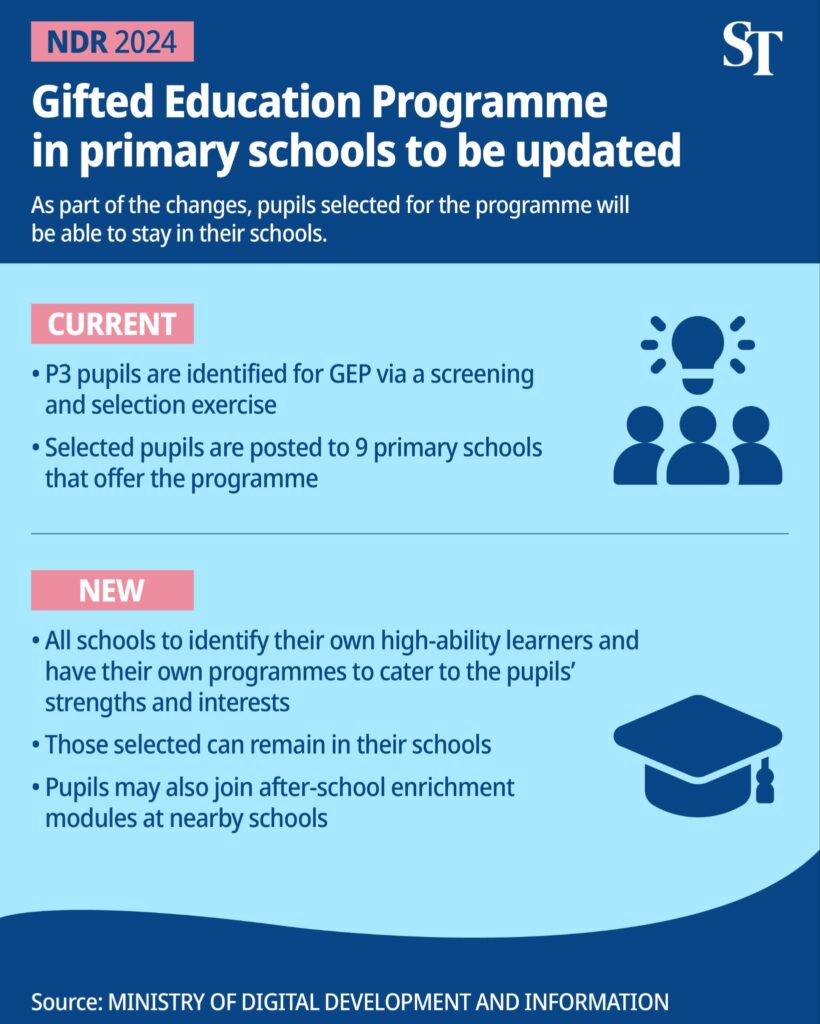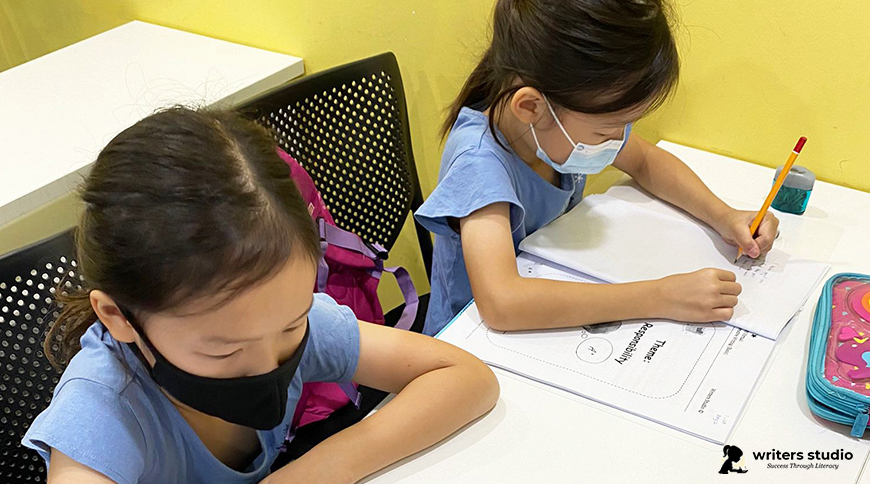
24 November 2025
Changes to Singapore’s Gifted Education Programme: What Parents Should Know
As Singapore’s education landscape continues to evolve, the Gifted Education Programme (GEP) is entering a new phase: one that places greater emphasis on inclusiveness, flexibility, and emotional well-being. These changes began with the 2024 Primary 1 cohort and will directly affect pupils entering Primary 3 in 2026 and Primary 4 in 2027.
As educators, we would like to help you understand what this shift means, and how you can best support your child through it.
A More Inclusive Model for High-Ability Learners
Prime Minister Lawrence Wong recently announced that the long-standing, centralised GEP system will be discontinued. Instead, all primary schools will gradually offer programmes to stretch high-ability pupils within their familiar environments.
This updated model benefits your child in several ways:
- No more school transfers at Primary 3, allowing pupils to grow where they feel most secure.
- Stronger emotional stability, as they remain with friends and teachers they already trust.
- Wider access, expanding support from about 1% to roughly 10% of pupils.
This aligns with MOE’s direction to nurture excellence without labelling children too early.
A Holistic and Thoughtful Identification Process
The former P3 GEP test will be replaced with a more comprehensive and child-friendly system. Schools will now consider:
- Teacher observations
- Daily work and behaviour
- A standardised assessment
- Multiple entry points from Primary 4 to 6
This is helpful for children who develop at different speeds. Some may show readiness later, and the new system allows room for this.
Tip for Parents:
Focus on your child’s growth, not the timeline. Progress looks different for every learner.
Enrichment Modules for Specific Strengths
For pupils who demonstrate strong abilities in areas such as English, mathematics or science, after-school enrichment modules will be available at designated nearby schools. These programmes will:
- Stretch pupils’ thinking without being exam-focused
- Cater to specific areas of interest
- Provide additional challenge in a healthy, structured way
Tip for Parents:
Encourage your child to explore out of curiosity, not comparison. Interest-driven learning is more sustainable.
Implementation Timeline
- 2024: New GEP model begins with P1 cohort
- 2026: First batch of P3 pupils under the new system
- 2027: First batch of P4 pupils participating in the updated programme
- Continued roll-out as cohorts progress
What This Means for Your Family
The new school-based GEP model aims to stretch high-ability learners without adding pressure or creating separation from peers. Pupils will be able to thrive academically while staying grounded in familiar environments.
For families, the benefits include:
- Fewer high-stress testing points
- More opportunities to be recognised over time
- A healthier, more balanced learning environment
- Greater fairness across schools
Our Advice to Parents:
- Celebrate effort and perseverance, not just outcomes.
- Keep communication open with your child’s teachers to understand their progress.
- Support your child’s emotional well-being—confidence often matters more than raw ability.
- Focus on long-term growth rather than early acceleration.




